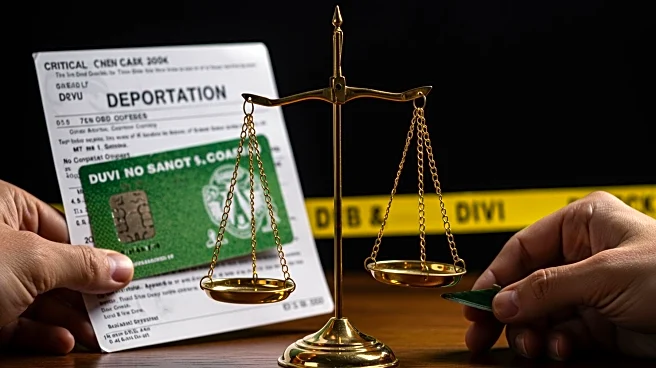What's Happening?
A bill passed by the U.S. House of Representatives and currently under Senate consideration could make driving under the influence (DUI) a deportable offense for non-citizens. The proposed legislation, H.R. 875, known as the Protect Our Communities from DUIs Act, aims to change current laws where low-level DUI offenses do not automatically result in deportation. The bill has garnered support from the White House and is being reviewed by the Senate Judiciary Committee. If enacted, it could affect green card holders, international students, and H-1B workers, potentially leading to deportation or denial of entry for past DUI offenses.
Why It's Important?
The proposed law represents a significant shift in U.S. immigration policy, potentially impacting millions of non-citizens living in the country. It raises concerns about the proportionality and fairness of using DUI offenses as grounds for deportation, especially for those with old or minor infractions. The bill could lead to increased legal challenges and anxiety within immigrant communities, particularly among those who have established lives in the U.S. but have past DUI records. The legislation underscores the administration's focus on strict immigration enforcement and public safety.
What's Next?
The bill's progress through the Senate will be closely monitored by immigration advocates and affected communities. Legal experts and immigrant rights organizations are likely to challenge the bill's provisions, arguing for due process and rehabilitation opportunities. Green card holders and other non-citizens with DUI records are advised to seek legal counsel and consider applying for U.S. citizenship if eligible. The outcome of this legislative process could set a precedent for future immigration-related laws and enforcement practices.










